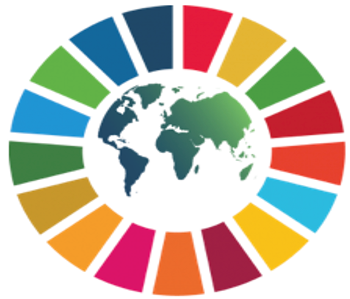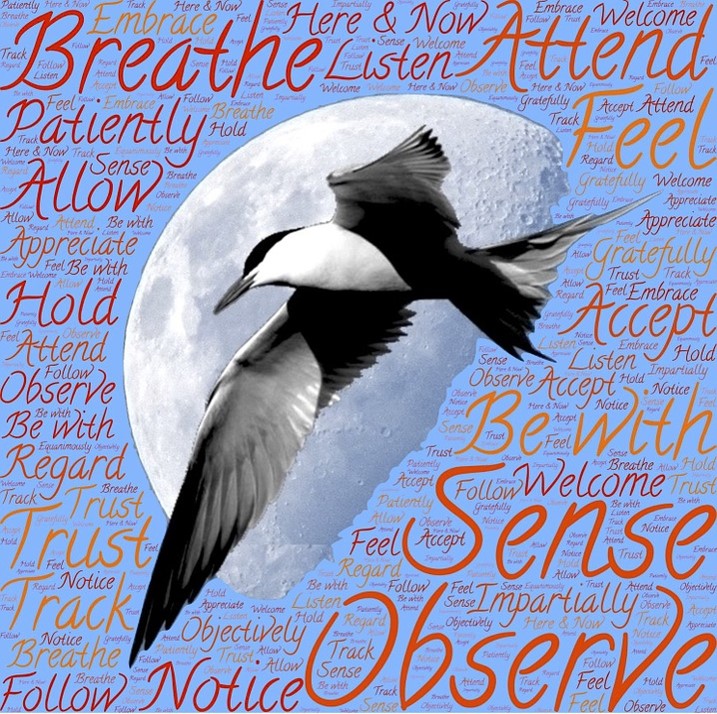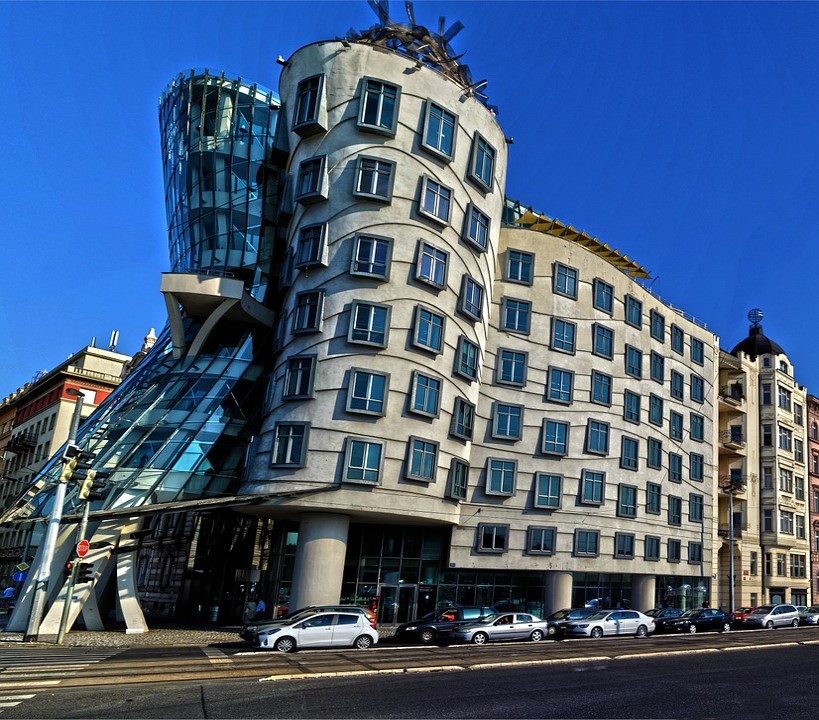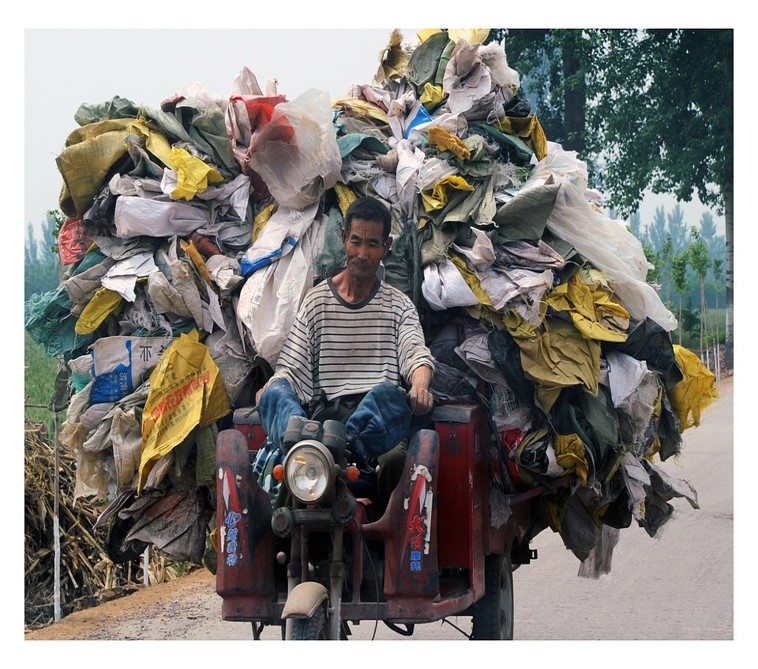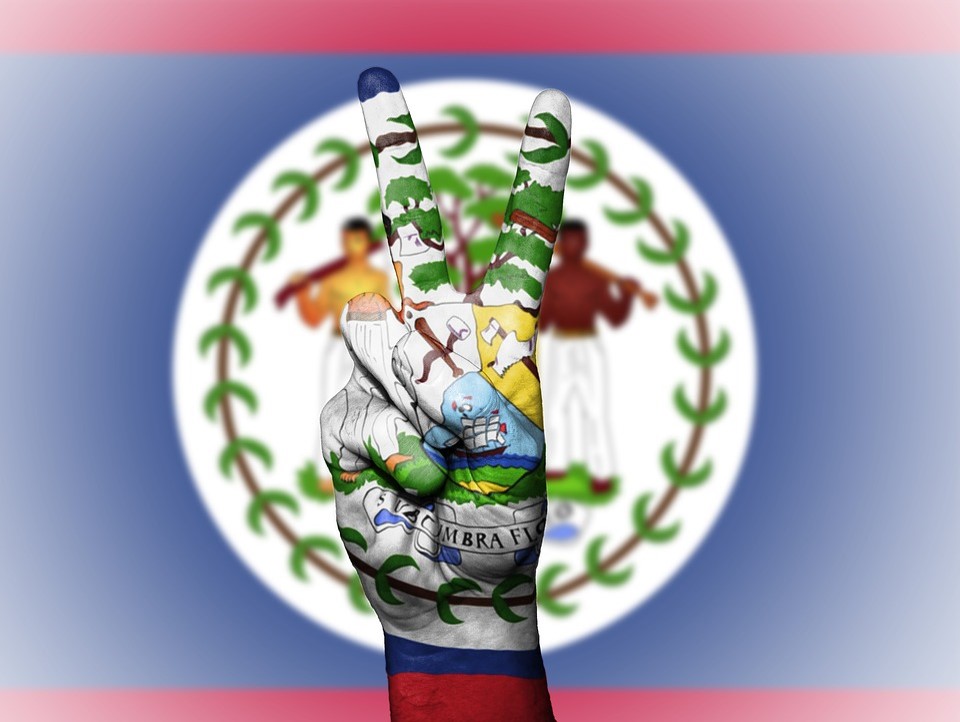Values & Politics
SW Community members are invited to send in information and examples of:
- The relevance and importance of the theme “Society” to achieve sustainability and the Global Goals (the SDGs of Agenda 2030), including social justice.
- How “Society” has been interpreted in particular contexts.
- How particular individuals, organizations, commercial enterprises and governments have been held to account, or not and why, for harm they have inflicted on people, communities and the environment.
- Your personal experiences or wishes.Note : simple explanations of each subject are in bold.
Please send information by email to info@sustainability-world.com.
Culture is the characteristics and knowledge of a particular group of people, defined by everything from language, religion, cuisine, social habits, music and arts.
- Culture is the characteristics and knowledge of a particular group of people, defined by everything from language, religion, cuisine, social habits, music and arts.
- Culture can be defined in many ways. In the words of anthropologist Tylor, it is “that complex whole which includes knowledge, belief, art, morals, law, custom and any other capabilities and habits acquired by man as a member of society.”[1]Alternatively, in a contemporary variant, “Culture is defined as a social domain that emphasizes the practices, discourses and material expressions, which, over time, express the continuities and discontinuities of social meaning of a life held in common.”[2]
- The Cambridge English Dictionarystates that culture is “the way of life, especially the general customs and beliefs, of a particular group of people at a particular time.”[3] Terror management theory posits that culture is a series of activities and worldviews that provide humans with the basis for perceiving themselves as “person[s] of worth within the world of meaning”—raising themselves above the merely physical aspects of existence, in order to deny the animal insignificance and death that Homo sapiens became aware of when they acquired a larger brain. https://en.wikipedia.org/wiki/Culture
Recreation is the refreshment of mind or body after work or worry: DIVERSION a way of refreshing mind or body for example sports, hiking and gardening are some favourite recreations.
Recreation is an activity of leisure, leisure being discretionary time. The “need to do something for recreation” is an essential element of human biology and psychology. Recreational activities are often done for enjoyment, amusement, or pleasure and are considered to be “fun“.
Recreation is an essential part of human life and finds many different forms which are shaped naturally by individual interests but also by the surrounding social construction.[2] Recreational activities can be communal or solitary, active or passive, outdoors or indoors, healthy or harmful, and useful for society or detrimental. Significant sections of recreational activities are designated as hobbies which are activities done for pleasure on a regular basis. A list of typical activities could be almost endless including most human activities, a few examples being reading, playing or listening to music, watching movies or TV, gardening, hunting, sports, studies, and travel. Some recreational activities – such as gambling, recreational drug use, or delinquent activities – may violate societal norms and laws.
Public space such as parks and beaches are essential venues for many recreational activities. Tourism has recognized that many visitors are specifically attracted by recreational offerings.[10] In support of recreational activities government has taken an important role in their creation, maintenance, and organization, and whole industries have developed merchandise or services. Recreation-related business is an important factor in the economy; it has been estimated that the outdoor recreation sector alone contributes $730 billion annually to the U.S. economy and generates 6.5 million jobs.
1a : the action or process of educating or of being educated; also : a stage of such a process
b : the knowledge and development resulting from an educational process – a person of little education
2: the field of study that deals mainly with methods of teaching and learning in schools.
Education is the process of facilitating learning, or the acquisition of knowledge, skills, values, beliefs, and habits. Educational methods include storytelling, discussion, teaching, training, and directed research. Education frequently takes place under the guidance of educators, but learners may also educate themselves.[1] Education can take place in formal or informal settings and any experience that has a formative effect on the way one thinks, feels, or acts may be considered educational. The methodology of teaching is called pedagogy.
Education is commonly divided formally into such stages as preschool or kindergarten, primary school, secondary school and then college, university, or apprenticeship
A right to education has been recognized by some governments, including at the global level: Article 13 of the United Nations‘ 1966 International Covenant on Economic, Social and Cultural Rights recognizes a universal right to education.[2] In most regions education is compulsory up to a certain age.
1: the communication or reception of knowledge or intelligence
2a (1) : knowledge obtained from investigation, study, or instruction (2): intelligence, news (3) : facts, data
b : the attribute inherent in and communicated by one of two or more alternative sequences or arrangements of something (such as nucleotides in DNA or binary digits in a computer program) that produce specific effects
c (1) : a signal or character (as in a communication system or computer) representing data (2) : something (such as a message, experimental data, or a picture) which justifies change in a construct (such as a plan or theory) that represents physical or mental experience or another construct
d : a quantitative measure of the content of information; specifically : a numerical quantity that measures the uncertainty in the outcome of an experiment to be performed
Information is Data that is (1) accurate and timely,
(2) specific and organized for a purpose,
(3) presented within a context that gives it meaning and relevance, and (4) can lead to an increase in understanding and decrease in uncertainty.
Information is valuable because it can affect behavior, a decision, or an outcome
. For example, if a manager is told his/her company’s net profit decreased in the past month, he/she may use this information as a reason to cut financial spending for the next month.
A piece of information is considered valueless if, after receiving it, things remain unchanged. For a technical definition of information see information theory.
Read more here:
Health: the condition of being sound in body, mind, or spirit
1a : She is the picture of health.; especially : freedom from physical disease or pain nursed them back to healthb : the general condition of the body How is your mother’s health?in poor health enjoys good health
2a : a condition in which someone or something is thriving or doing well : well-being defending the health of the beloved oceans — Peter Wilkinsonb : general condition or state poor economic health
3: a toast to someone’s health or prosperity
Well-being, well-being,[1] welfare or wellness is a general term for the condition of an individual or group, for example their social, economic, psychological, spiritual or medical state; a high level of well-being means in some sense the individual or group’s condition is positive, while low well-being is associated with negative happenings.
In philosophy, the term ‘well-being’ (and ‘welfare’, ‘utility’, etc.) refers to the manner in which an individual’s life manifests desires, objectives, and needs—among myriad more diverse variables—and how these affect the individual’s perspective.
Philosophers, such as Fred Feldman and Brad Hooker, have suggested we should think of well-being in terms of a parent’s expectations for a child (aka ‘crib test’)[citation needed]. Philosophical study of well-being identifies a number of different kinds of theory, such as: hedonism, desire-fulfillment theory, objective-list theory, perfectionism, and some ‘mixed’ or ‘hybrid’ views of well-being. Well-being features in normative ethical theories, most notably utilitarianism; one need not be a utilitarian, or a consequentialist, more generally, to think that well-being is a moral matter. Any plausible ethical theory will give at least some role to well-being.
In economics, the term is used for one or more quantitative measures intended to assess the quality of life of a group, for example, in the capabilities approach and the economics of happiness. As with the related cognate terms ‘wealth’ and ‘welfare’, economics sources often contrast the state with its opposite.[2] The study of well-being is divided into subjective well-being and objective well-being.
Buildings or other shelter in which people live: a shortage of housing in the city.
A place to live; a dwelling.
She came to college early to look for housing.
Provision of lodging or shelter: the housing of refugees; a contract that includes housing. http://www.thefreedictionary.com/housing
Physical infrastructure: a nation’s physical infrastructure consists of a broad array of systems and facilities that house and transport people and goods and provide services. Among other things, this infrastructure includes transportation networks, including roads, airports, rail, and mass transit; housing; federal buildings and facilities; and postal and telecommunications services.
These systems and facilities do not exist in isolation: decisions about where to build or expand roads affect decisions about housing and vice versa, and, in turn, these decisions affect the need for and location of public facilities and communications and energy services.
1 : just conduct, management, or treatment <do justice to a book>
2 a : 2JUDGE 1 b : the administration of law <received justice in court>
3 a : the quality of being fair or just
b : basis in morality, the right, or the law
- The quality of being just; fairness: In the interest of justice, we should treat everyone the same.
- The principle of moral rightness; decency.
- Conformity to moral rightness in action or attitude; righteousness:
argued for the justice of his cause.
3.
- The attainment of what is just, especially that which is fair, moral, right, merited, or in accordance with law: My client has not receivedjustice in this hearing.
- Law: The upholding of what is just, especiallyfair treatment and
due reward in accordance with honor, standards, or law: We seek justice in this matter from the court.
- The administration, system, methods, or procedures of law: aconspiracy to obstruct justice; a miscarriage of justice.
- Conformity to truth, fact, or sound reason: The overcharged customerwas angry, and with justice.
- LawA judge on the highest court of a government, such as a judge on the US Supreme Court.
- http://www.thefreedictionary.com/justice
A way of earning money in order to live
- Many fishermen believe that the new regulations threaten their livelihoods.
- (formal) He claims he lost a source/means of livelihood when he was injured. learners
- person’s livelihood refers to their “means of securing the basic necessities -food, water, shelter and clothing- of life”. Livelihood is defined as a set of activities, involving securing water, food, fodder, medicine, shelter, clothing and the capacity to acquire above necessities working either individually or as a group by using endowments (both human and material) for meeting the requirements of the self and his/her household on a sustainable basis with dignity. The activities are usually carried out repeatedly.[1] For instance, a fisherman’s livelihood depends on the availability and accessibility of fish.
- The concept of Sustainable Livelihood (SL)[2][3][4][5] is an attempt to go beyond the conventional definitions and approaches to poverty eradication.
- These had been found to be too narrow because they focused only on certain aspects or manifestations of poverty, such as low income, or did not consider other vital aspects of poverty such as vulnerability and social exclusion. It is now recognized that more attention must be paid to the various factors and processes which either constrain or enhance poor people’s ability to make a living in an economically, ecologically, and socially sustainable manner.
- The SL concept offers a more coherent and integrated approach to poverty. The sustainable livelihoods idea was first introduced by the Brundtland Commission on Environment and Development, and the 1992 United Nations Conference on Environment and Development expanded the concept, advocating for the achievement of sustainable livelihoods as a broad goal for poverty eradication.
- In 1992 Robert Chambers and Gordon Conway[6]proposed the following composite definition of a sustainable rural livelihood, which is applied most commonly at the household level: “A livelihood comprises the capabilities, assets (stores, resources, claims and access) and activities required for a means of living: a livelihood is sustainable which can cope with and recover from stress and shocks, maintain or enhance its capabilities and assets, and provide sustainable livelihood opportunities for the next generation; and which contributes net benefits to other livelihoods at the local and global levels and in the short and long term.”[7]people are getting poor due to inflation.
- https://en.wikipedia.org/wiki/Livelihood
Social Protection
- Concepts and définitions
- Social protection is concerned with protecting and helping those who are poor and vulnerable, such as children, women, older people, people living with disabilities, the displaced, the unemployed, and the sick. There are ongoing debates about which interventions constitute social protection, and which category they fit under, as social protection overlaps with a number of livelihoods, human capital and food security interventions (Harvey et al., 2007).
- Social protection is commonly understood as “all public and private initiatives that provide income or consumption transfers to the poor, protect the vulnerable against livelihood risks and enhance the social status and rights of the marginalised; with the overall objective of reducing the economic and social vulnerability of poor, vulnerable and marginalised groups” (Devereux & Sabates-Wheeler, 2004: i).
- This definition is in line with usage in international development, and may be different from social policy definitions in high-income countries. Social protection is usually provided by the state; it is theoretically conceived as part of the ‘state-citizen’ contract, in which states and citizens have rights and responsibilities to each other (Harvey et al., 2007).Objectives
- http://www.gsdrc.org/topic-guides/social-protection/what-is-social-protection/
Participation – the act of joining with others in doing something:
1: the act of participating
2: the state of being related to a larger whole
Participation in social science refers to different mechanisms for the public to express opinions – and ideally exert influence – regarding political, economic, management or other social decisions. Participatory decision-making can take place along any realm of human social activity, including economic (i.e. participatory economics), political (i.e. participatory democracy or parpolity), management (i.e. participatory management), cultural (i.e. polyculturalism) or familial (i.e. feminism).
For well-informed participation to occur, it is argued that some version of transparency, e.g. radical transparency, is necessary but not sufficient. It has also been argued that those most affected by a decision should have the most say while those that are least affected should have the least say in a topic. https://en.wikipedia.org/wiki/Participation_%28decision_making%29
Legal Definition of participation
- 1:the action or state of taking part in something: asa : association with others in a relationship (as a partnership) or an enterprise usually on a formal basis with specified rights and obligations a loan made directly or in participation with a bank b : profit sharing
- 2a: something in which shares are taken by more than one party
- b:something that results in a share (as of a distribution)
https://www.merriam-webster.com/dictionary/participation
Find more : UN Public Administration Programme
http://www.un.org/esa/socdev/egms/docs/2013/EmpowermentPolicies/Elia%20Armstrong%20presentation.pdf
https://www.merriam-webster.com/dictionary/participation
Find more : UN Public Administration Programme
http://www.un.org/esa/socdev/egms/docs/2013/EmpowermentPolicies/Elia%20Armstrong%20presentation.pdf
Social Relations:
The sum of the social interactions between people over time. This can be a positive or a negative relationship. Momentary social interactions can be described in terms of parental care, dominant-subordinate or aggressive-fearful interactions etc. http://psychologydictionary.org/social-relationship/
Social relationships—both quantity and quality—affect mental health, health behaviour, physical health, and mortality risk. Sociologists have played a central role in establishing the link between social relationships and health outcomes, identifying explanations for this link, and discovering social variation (e.g., by gender and race) at the population level. Studies show that social relationships have short- and long-term effects on health, for better and for worse, and that these effects emerge in childhood and cascade throughout life to foster cumulative advantage or disadvantage in health. This article describes key research themes in the study of social relationships and health, and it highlights policy implications suggested by this research.
Keywords: relationships, social support, social integration, stress, cumulative disadvantage
https://www.ncbi.nlm.nih.gov/pmc/articles/PMC3150158/
- a state of quiet; especially : freedom from public disturbance or war
- freedom from upsetting thoughts or feelings
- harmony in personal relations
- a : a state or period of peace between governments b : an agreement to end a war
5 b : an agreement to end a war
Definition of peace
- 1: a state of tranquillity or quiet: such as
- a:freedom from civil disturbance – Peace and order were finally restored in the town.
- b:a state of security or order within a community provided for by law or custom a breach of the peace
2: freedom from disquieting or oppressive thoughts or emotions –I have been in perfect peace and contentment — J. H. Newman
3: harmony in personal relations – The sisters are at peace with each other.
4a: a state or period of mutual concord between governments There was a peace of 50 years before war broke out again
.b : a pact or agreement to end hostilities between those who have been at war or in a state of enmity offered the possibility of a negotiated peace — New York Times
5 used interjectionally to ask for silence or calm or as a greeting or farewell at peace.
Peace is a lack of conflict and freedom from fear of violence between heterogeneous social groups. Benevolent leaders throughout history have shown restraint establishing regional peace and economic growth through peace treaties that resulted from de-escalating conflicts and multilateral and bilateral peace talks. Commonly understood as the absence of war or violent hostility, peace often involves compromise, and therefore is initiated with thoughtful active listening and communication to enhance and create genuine mutual understanding. Because peaceful behavior can result from calm emotional states, people are sometimes understood to “feel peaceful,” and de-escalating conflicts can involve reducing emotions. Peace talks that start without preconditions or preconceived notions sometimes represent more than just negotiating opportunities. They can be important learning opportunities necessary for mutually beneficial results.
Safety and Security:
What is the difference between Safety and Security ?
- Safety and security are closely interrelated concepts that pertain to protection of lives and assets.
- While safety is protection against hazards (accidents that are unintentional), security is a state of feeling protected against threats that are deliberate and intentional.
Safety vs Security
Though the two words safety and security are always used together, there is a distinct difference between safety and security that needs to be understood clearly. You must have heard them most often in terms of threats to the safety and security of a nation, organisation or a system. On a more personal level, you secure yourself with arms to feel safe. This clearly means that the two words, though closely interrelated, are different, and this article will highlight the differences between safety and security to remove doubts from the minds of readers who think they are synonyms or interchangeable.
Find more: http://www.differencebetween.com/difference-between-safety-and-vs-security/
